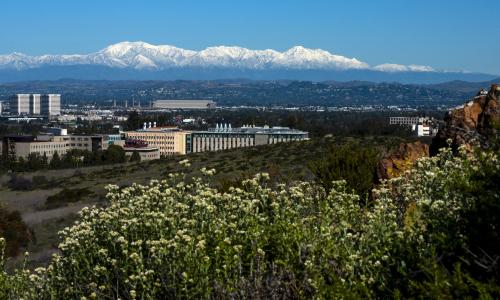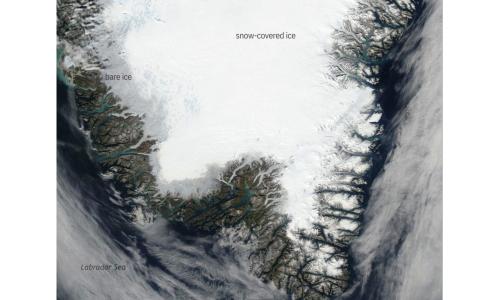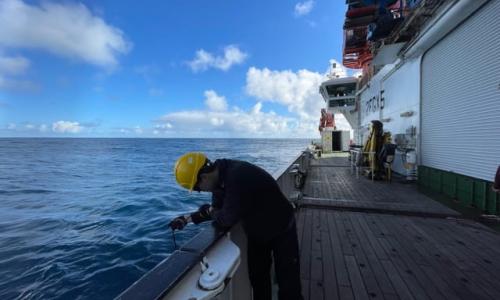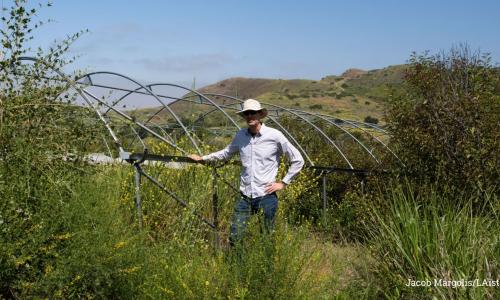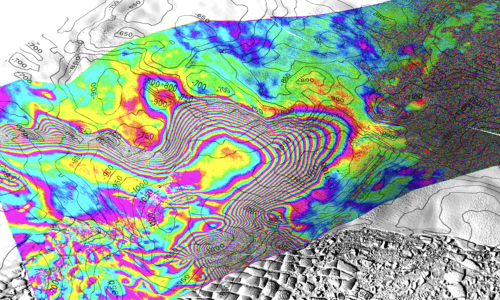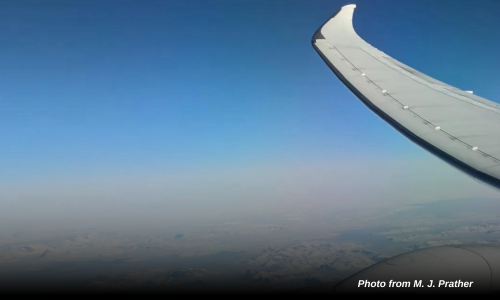Earth System Science
Aug 27, 2024
Beginning in 2023, UC Irvine undergraduate students had the opportunity to complete the Environmental Changemakers certificate program. The program, jointly created by the schools of engineering,…
Aug 22, 2024
Studies in climate chambers show humidity adds danger, but analyses of population-wide mortality rates suggest otherwise.
Aug 2, 2024
UCI Physical Sciences graduate students are redefining their fields at Los Alamos National Lab.
Jul 15, 2024
Their update accounts for the effects of overlooked physical properties in ice.
Jul 9, 2024
UC Irvine Earth system scientist is part of team that released, tracked deep ocean dye.
Jul 9, 2024
The astronaut got a special phone call halfway through her postdoc at UC Irvine.
Jul 2, 2024
In the Santa Ana foothills high above Irvine, you'll find some small patches of land beneath hoop houses that've been deliberately kept in drought for the past 17 years.
Jun 28, 2024
The Doomsday Glacier, predicted to raise global sea level by more than half a meter, could be exposed to more warm ocean water than previously thought.
Jun 28, 2024
The UCI Earth system science grad student recounts the stories of how she fell into science, and how they discovered their queer identity.
Jun 27, 2024
More than a third of Americans endure summers at least 1.5C hotter than the 1895 average, analysis shows.
Jun 17, 2024
A new study suggests that spillover of tropospheric ozone is affecting measurements of stratospheric ozone recovery more than previously realized.
Jun 11, 2024
Over 8,200 Class of 2024 members will attend commencement ceremonies this month.

